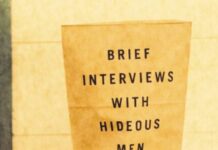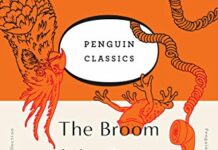
Ebook Info
- Published: 2005
- Number of pages: 505 pages
- Format: PDF
- File Size: 1.03 MB
- Authors: David Foster Wallace
Description
This celebrated collection of essays from the author of Infinite Jest is “brilliantly entertaining…Consider the Lobster proves once more why Wallace should be regarded as this generation’s best comic writer” (Cleveland Plain Dealer). Do lobsters feel pain? Did Franz Kafka have a funny bone? What is John Updike’s deal, anyway? And what happens when adult video starlets meet their fans in person? David Foster Wallace answers these questions and more in essays that are also enthralling narrative adventures. Whether covering the three-ring circus of John McCain’s 2000 presidential race, plunging into the wars between dictionary writers, or confronting the World’s Largest Lobster Cooker at the annual Maine Lobster Festival, Wallace projects a quality of thought that is uniquely his and a voice as powerful and distinct as any in American letters.”Wallace can do sad, funny, silly, heartbreaking, and absurd with equal ease; he can even do them all at once.” –Michiko Kakutani, New York Times
User’s Reviews
Reviews from Amazon users which were colected at the time this book was published on the website:
⭐(Note before beginning this doubtless overlong review: My five-star rating applies to every essay in this book except for Authority and American Usage, which I do intend to read eventually but haven’t yet. All apologies for the exclusion.)Love him or hate him, there’s no denything that David Foster Wallace is a distinctive voice in the American literary world right now. And while I’ve greatly enjoyed pretty much all the fiction of his that I’ve read (especially the gargantuan novel Infinite Jest), Wallace has proven in his two essay collections that he might be even better at nonfiction. And Consider the Lobster and Other Essays, which pulls writings of Wallace’s from the past decade, easily contains some of his best work. The frequently bizarre fetishism that accompanies Wallace’s fiction is generally absent or at least restrained here, so if you’re one of the many people who found Infinite Jest or Wallace’s extensive catalogue of stories to be excessively dense or pretentious, that shouldn’t scare you from this collection.As he already proved with his previous collection A Supposedly Fun Thing I’ll Never Do Again (especially the title essay), at his best Wallace is almost impossibly original and comprehensive essayist, always managing to cover his subject from every angle, including a few you wouldn’t be likely to think of on your own. While all his essays have nominal subjects, Wallace is a master of tangents, freely ranging from his initial discussions to ruminate on, well, whatever comes to his mind. And since Wallace seems to know everything, he’s free to write about anything, and I for one always find myself indulging his frequent asides and extended footnotes. He’s also an extremely funny writer, both in his essays and otherwise, but not in a conventional sense. He doesn’t make jokes per se; he mostly just addresses his subject matter in a deadpan, matter-of-fact way that sort of makes the comedy come out on its own.Never is this skill more apparent than in the book’s powerhouse opener Big Red Son, an account of Wallace’s visit to Las Vegas for the 1998 Adult Video News Awards (Sort of a much less pretentious pretentious version of the Oscars, except involving porno movies). Wallace’s rattling off the names of some of the industry’s more promiment performers and titles (most of which probably aren’t safe to reproduce here) is funny enough, but the humor goes into overdrive when he discusses the sights on display at the Adult Software exhibition(“Imagine that the apocalypse took the form of a cocktail party”) or pornography’s recent “bizarro sleaze” movement, both of which had me laughing to the point of physical pain. Of course, the adult-film industry is an easy target for potshots, but Big Red Son is far more than just an extended mockery; it’s a comprehensive treatment of the AVN awards in particular and the porno industry in general, complete with plenty of amusing anecdotes, eye-popping statistics, and thoughtful reflections on just what provides adult movies with such wide-ranging and enduring appeal.While Big Red Son is definitely my favorite here, every essay I read was at the very least interesting, especially the longer ones that allow Wallace plenty of room for in-depth examination and discussion of complex topics. While Wallace isn’t really an ideological writer, at least not in the left vs. right sense (although he is pretty clearly what you’d generally call a liberal), two of the book’s extended essays deal directly with politics. Host is superficially a profile of right-wing LA radio host John Zeigler, but it quickly branches out into a look at the several of the dominant aspects of our cultural landscape: the rising prominence of the talk-radio industry and the business considerations behind it, the current state of political debate and why right-wing sentiments are becoming increasingly appealing, and the very evolution of media itself as more and more information options become available. The all-encompassing breadth of Wallace’s treatment of Zeigler’s show is hard to believe, as there are all sorts of prolonged asides and footnotes-within-footnotes arrayed all over the pages, addressing seemingly arcane material like just how a radio show broadcast gets on the airwaves and painstaking process of properly fitting the right amount of advertising into a show comprised of incendiary political rants.Wallace’s other foray into politics, Up, Simba, provides a first-person account of Wallace’s trip to South Carolina with John McCain’s improbably near-successful campaign for the 2000 Republican presidential nomination. Once again, Wallace goes into exhausive detail on pretty much everything you could want to know about, from biographical details on McCain; to the incredibly taxing existence of the correspondents and technicians on the campain trails; to the widespread disillusionment with modern politics and how it both helps and hurts McCain’s chances; to the agonizing decisions that go into avoiding the negative-campaigning trap and crafting the image of a candidate who’s not supposed to have an image. Wallace makes the ideal writer for a piece on the whole McCain “anti-candidate” phenomenon, as the manages to place everything in perspective and make some salient points without ever resorting to the opposing pitfalls of excessive preachiness or excessive cynicism. His relative outsider status and lack of a vested interest in the outcome actually make Wallace’s insights feel even more convincing, as he has no axes to grind: while he obviously possesses a great deal of admiration for McCain as a man, Wallace makes it clear that he (like me) finds many of McCain’s policy ideas extremely frightening. Wallace even manages to throw in a screed against non-voters (his logic being that not casting a ballot merely doubles the importance of the vote for an establishment candidate) without resorting to the same tired old pieties. At any rate, while they obviously deal with a decidedly different subject than Big Red Son, Host and Up, Simba provide two more examples of what makes Wallace’s essay style unique and thought-provoking. Whether talking about pornogrpahy or politics, he doesn’t take a position and argue it; he tries instead to provide the reader with a deeper understanding of the forces and ideas at work.Of the book’s shorter essays, two are worth a special mention. The first, How Tracy Austin broke my heart, sees Wallace taking on the subject of sports memoirs in the wake of his crushing disappointment at the sheer banality of Tracy Austin’s autobiography. It may not sound like much of an essay premise, but Wallace eventually launches into a discussion of the painful irony that the exploits of our greatest athletes are so transcendent that they simply can’t survive the transition to the page. It’s actually sort of poignant watching Wallace struggle with this realization, as his initial excitment at reading about the life of one of his favorite tennis players dissolves into a realization that no autobiography can ever really provide a window into what separates the likes of Larry Bird and Michael Jordan from the rest of us.My other favorite among the shorter essays here, the titular Consider the Lobster, starts out similarly to the much longer A Supposedly Fun Thing I’ll Never Do Again. Much as that piece chronicled Wallace’s dystopian experiences aboard a cruise ship, Consider the Lobster sees him visiting the annual Maine Lobster Festival, which he basically describes as a nightmarish tourist trap whose democratization of lobster-eating pretty much sucks all the fun out of it (if you’ve spent anywhere near a significant amount of time on Cape Cod, as I have, Wallace’s observations on the self-contradictory nature of mass tourism will definitely ring true). Much as with How Tracy Austin Broke My Heart, though, Wallace’s dissatisfaction with his experience is just a springboard for a broader, if in this case somewhat unrelated, discussion surrounding the moral issues that come with boiling lobsters alive for the sole purpose of eating them. Far from an angry, PETA-style manifesto, though, Consider the Lobster is really a meditation on ethics and the moral compromises we all make for the sake of convenience. After all, Wallace notes, we could easily make it through life without eating slaughtered animals, but most of us don’t, and more to the point, we don’t even generally acknowledge the possibility that rampant animal-eating may undermine our cherished moral pretensions. Why, Wallace asks? Well, he doesn’t provide any answers, but it’s still an interesting question, and one of many you may find yourself asking after reading Wallace’s writing.
⭐David Foster WallaceThis book started out the way most brilliant pop psychology books start in that it teaches you aspects of life from an angle you may have never considered before. Since this book is a collection of divurgent essays, it must be reviewed chapter by chapter, or essay by essay. The first chapter “Big Red Son” involves comedic talk of the porn industry. To be fair to the author, David Foster Wallace, this essay was first written in 1998, and some may decide it unfair to declare it dated, but I didn’t read this until 2012, so I am forced to say that this material has been mined for all its worth at the time of my reading. (See Chuck Palahniuk’s Snuff.)The second chapter “Some Remarks on Kafka’s funniness…” whets the appetite. The general idea of this chapter is that humor is not very sophisticated today has been mined by those of us obsessed with pop culture, but Wallace does get some points for listing the current sense of humor that is on parade today that doesn’t understand the sophisticated and subtle humor of a Franz Kafka. He says that “Kafka’s humor has almost none of the particular forms and codes of contemporary US amusement.” This launches the author onto a detailed list of complaints about contemporary humor brought to the homes of TV watchers. The chapter is worth reading not for its “When I was a kid, we had to walk ten miles to school” style complaints about the youth of the day, but the illustrative manner in which Wallace complains about humor in general. A complaint this author laments may not be generational.The fourth chapter may be the selling point for this book. In it, Wallace describes a war that has been occurring in the English language for a couple generations now. Wallace calls it a Usage War. The Usage War describes how one side, the more traditional side, the prescriptive side pleads for a return to traditional English. He talks of the other side, the more modern side that describes itself as a more scientific study of the language, updating our usage on a more inclusive plane. The latter, called the descriptive side, calls for more political correctness in its language. It calls for a more comprehensive list of words and usage that incorporates styles of language such as Ebonics and words that are more commonly used, such as “irregardless”. Previous to this reading, I heard that tired phrase “everything is political”, but I had no idea that that phrase could extended to dictionaries. The author’s reporting on this subject is excellent. It is informative without being biased, and it is subjective with enough objectivity to present both viewpoints in a manner that allows you to decide which side is more conducive to progress in our language.Wallace is not as unbiased in his John McCain chapter however. He makes sure, in the opening portions of this Rolling Stone article, he was hired to write, that his colleagues know that he is not a political animal (i.e. he is stridently liberal). He lets them know he voted for Bill Bradley. Other than the requisite need all writers at Rolling Stone feel to display their liberal bona fides, it’s not clear why Wallace would include his opinion in a piece that purports to cover an election campaign. If I were granted the honor of being paid to cover a Nancy Pelosi campaign, for example, I would not begin this piece with a couple of paragraphs describing how I feel about her or politics in general, but such is the state of journalism in America today…particularly in the halls of Rolling Stone. To have such an article begin with a political screed that is different than mine, would normally turn me off, but I’ve grown used to it. (I know, I know, there is no bias.) The real turn off occurs after the reader wades through the partisan name-calling, when they are treated to a languid dissertation on the minutiae involved on a campaign bus. If you’re ever aching to know what goes on in a political campaign, I mean really aching to know, this is the chapter for you. I would say that most are curious about the machinations that occur behind the scenes, but I would say that most of those same people would have their curiosity tested by Wallace’s treatment here. He says that the editors at Rolling Stone edited the piece. He says that he always wanted to provide his readers a director’s cut. After reading through the first twenty pages of this chapter (eBook edition), I was mentally screaming for that editor to step in and assist me through the piece. It’s not that it’s poor writing, nor that it’s entirely without merit, but you REALLY have to be one who aching to know the inner workings of a campaign. You have to want to know bathroom difficulties–such as keeping a bathroom door closed on a tour bus–you have to want to know what reporters eat, why they eat it, and when. You have to want your minutiae wrapped in minutiae, until your eyes bleed with detail. It’s a cardinal rule of mine to never skip passages. I live with the notion that I can learn something from all authors I deem worthy, and I deem Wallace to be a good writer with an adept and varying intellect, but I had to break my cardinal rule with this chapter. It was too painful a slog.As for the chapter on Tracy Austin, Wallace laments the fact that championship level athletes aren’t capable of achieving a degree of articulation that he wants when he purchases one of their autobiographies. Tracy Austin, for those who don’t know, was a championship level tennis player. Wallace purchased her autobiography hoping that, as an adult long since removed from the game, she would be able to elucidate the heart of a champion. He hoped that Austin would be able to describe for us what went through her mind at the moment when she achieved the pinnacle of her career, and he wanted to know what she thought about the accident that led to her premature demise. He wasn’t just disappointed, he says, in the manner he is disappointed with sideline interviews that are loaded with “we give it 110%, one game at a time, and we rise and fall as a team” style clichés. He sums up his disappointment with the following:”It may well be that we spectators, who are not divinely gifted as athletes, are the only ones able truly to see, articulate, and animate the experience of the gift we are denied. And that those who receive and act out the gift of athletic genius must (out of necessity) be blind and dumb about it–and not because blindness and dumbness are the price of the gift, but because they are its essence.”In other words, we are able to express these ideas based on the fact that we concentrate on the arena of the mind, and their concentration lies in the heart of athletic competition. We, non-athlete types, think about the things they do, we fantasize about them, and they do them. We think about how glorious it would be to sink that championship shot over Bryon Russell, Michael Jordan just does it. We think about that incredibly perfect and physically impossible baseline shot of a Tracy Austin, Tracy just does it. We see the replays of their exploits endlessly repeated on Sportscenter, and we hear almost as many different analyses of them. We then think about these plays from all these varied angles that are provided, and we project ourselves onto that platform. We don’t think about all the rigorous hours a Michael Jordan spent in gyms preparing for that moment, we simply think about that moment, and what it would mean to us to have conquered such a moment. So, when one of these athletes steps away from that stage to offer us a few words about that moment and those few words center around the “I just did it” meme we are profoundly disappointed. To paraphrase Yoda, “they don’t think, they do, or they do not.” They use the force granted to them though spending a greater percentage of their lives in gyms, on tennis courts, and in weight rooms. They concentrate on muscle memory to prevent the mind from interfering with their eventual completion of the act. If we, non-athlete types, were in a similar situation, we would think about the significance of the history of the game, the profundity of the moment, how this moment may affect the rest of our lives, how many people are watching us, if Bryon is a better athlete than we are, and will he block our shot, what the fellas are going to say about this play after the game, and we would become so immersed in the moment that we probably wouldn’t make the shot. The point is that they’ve made that shot so many times, in so many different ways and games, that they simply reply on muscle memory to make the championship shot. They may think about that shot, as long as it takes them to project it, but once they step on the court, they go on auto-pilot to complete the mission. They would love to give Hemingway-esque descriptions of their game, that satisfied us all, and landed them a weekly spot on Pardon the Interruption, but for all the reasons described here they are simply incapable of it.I used to wonder what announcers were talking about when they said, “He’s too young to understand what this means.” This kid, as you call him, has been playing this game his whole life, and he’s lived the life of the championship level athlete, which means sacrificing the norms of daily life that his peers knew, and he’s done all that for “this” moment. What do you mean he doesn’t know what it means? It dawned on me, after a couple struggles with it, that “this kid” doesn’t know what this moment would mean to that announcer…or those of us at home watching. In that post-game interview, then, we’re looking for something, some little nugget that we can identify with. When we get phrases from the cliché vault, we’re so disappointed that they didn’t put more effort into identifying with our sense of their glory. We’re frustrated that they couldn’t reach us on our level. Yet, as Wallace states, it is the essence of a championship level athlete to be “blind and dumb” during the moments that define them, and we all know this to one degree or another. We’ve all seen these championship level athletes being interviewed about their individual moments thousands of times, so why do we continue to be so frustrated with them, and does this continued sense of frustration begin to say more about them or us?
⭐Ted Kluck is one of my favourite writers, and one of Ted Kluck’s favourite writers is David Foster Wallace. Thus it was that I picked up this collection of essays by the late Wallace, and I am so glad I did.”Consider the Lobster” is one of ten essays in this book, whose subjects range from the sublime (a thoughtful review of Professor Joseph Frank’s biographical works on Dostoevsky) to the faintly ridiculous (the titular essay referring to a lobster food festival). What I really love about every single one of these essays is that Wallace’s tone and voice is so clear in every one, even though the subjects and styles of essays are so different. While some of the subject matter is pretty risqué (the first essay is an account of a visit to a major porn industry convention), Wallace writes with such humanity and desire to see the heart behind what often seems heartless (another essay deals with politics, with Wallace joining the McCain2000 campaign for a week).Stylistically and artistically as well, these essays are a joy to read: “Authority and American Usage” is an essay reviewing Bryan A Garner’s ‘A Dictionary of Modern American Usage’, and is hilarious in its intelligence and (not particularly) gentle mocking of the very concept of a book describing the American use of language. Not that he doesn’t see the need or interest in such a volume, but rather Wallace makes a point of using as much language as physically possible.Any good artist makes you want to be a better artist yourself, and this collection of writing both shows how writing can be great and entertaining no matter what the subject, and makes me want to be a much better writer and thinker. Wallace wrote thoughtfully and (I think) with fairness and clarity, and ten years after his tragic death, it’s a real shame that he is not here to try and dissect the world as it looks now. I enjoyed these essays very much and am looking forward to getting a hold of more of Wallace’s writing as soon as I can.
⭐My introduction – bit late, but never mind – to DFW. This essay collection divides between reportage and what I can best call scholarly dissertation. The former’s simply brilliant. The best written and most entertaining examples of gonzo journalism I’ve read since Hunter Thompson. The scholarly dissertations are desperately hard work. Maybe a bit of an exercise in intellect-flaunting. Making a point/reaching a conclusion – and then repeating the exercise from umpteen different angles. Again. And again. And again. Both styles require stickability from the reader, with endless footnotes, asides, and footnotes to footnotes. You get into the swing of things after a while, but physically – as well as mentally – it’s not an easy read. (But ultimately very rewarding). One thing that really *did* irritate me – and this has nothing to do with the author – but (and I’m guessing this was in a bid to keep body copy and notes within bounds) the publishers of the edition with the lobster on the cover printed the text in what I’d call a ‘normal size’ type…but the footnotes are *miniscule*. A real effort to read. They finally got to grips with this with ‘The Host’ – the last essay in this anthology – but why this type of layout wasn’t utilised for all the entries is baffling. Anyway, the good way outweighed the bad. I so enjoyed my DFW introduction and look forward to experiencing more. Recommended.
⭐Some very well written and revealing pieces in this diverse collection, though I think “Pulphead” is better, being a more cohesive and controlled example of the genre. He covers some really interesting topics here like following John McCain on the campaign trail and being a part of the AVN (porn)awards and of course, Maine lobster. I thought the piece on the D-J John Ziegler was great.I understand it’s always horses for courses in tastes but I thought he took the whole quirky footnote gimmick and footnote upon footnote idea too far and it definitely got more than a little tired and old for me and by the end of the book I found it just got in the way of the main body of the work and as a result undermined the overall message and quality of his book. I’d probably give him another shot though.
⭐If you are thinking of buying the Kindle edition there are two things you should know:1) The essay “Host” is not included in electronic editions of the book, although it is included in physical editions.2) David Foster Wallace’s style includes extensive use of footnotes, and on older Kindles it’s somewhat fiddly to navigate to footnotes and back.For these reasons, this particular book is probably best read in hard copy.
⭐I haven’t read a great deal of DFW’s works. I tried tackling ‘Infinite Jest’ but it’s taking me a long time to get through it (I think the ‘Jest’ is on us for reading it). However, this was my first introduction to this quite intriguing figure, a man who, sadly, took his life in 2008. This is not a standard book of essays in the same way that, say, Hitchens or Orwell would write essays. There are only a handful of essays ranging from the short to the very long and I feel that such a funny intellect as DFW would have been better spent covering more topics: I never felt I was getting my money’s worth. A trend in DFW’s works is his love of tennis: B-O-R-I-N-G. ‘Infinite Jest’ is littered with tennis stuff: to someone like me, that is just not going to cut it. One of the essays is about tennis and I nearly fell asleep reading it. The longest essay (‘Up Simba’) is interesting as it looks at an American political campaign (I think it was John McCain’s early one) in a sort of Hunter S. Thompson manner. The first essay (essentially a look into the AVN – porn – awards) is laugh out loud funny and showcases the brilliant comedic talent of DFW. His review of Joseph Frank’s ‘Dostoevsky’ will make you want to read the old Russian master’s works – such is his wonderful praise. But these two essays (‘Big Red One’ and ‘Joseph Frank’s “Dostoevsky”‘) were, for me, the only real interesting essays – the others were dreadfully mundane. Another caveat: DFW is notorious for his use of footnotes, some are very funny, but they often get very tiring and are overused. A very idiosyncratic author. I’d recommend ‘Infinite Jest’ (if you enjoy a challenge) but I’d steer clear of this book if it’s your first go at DFW.
Keywords
Free Download Consider the Lobster: And Other Essays in PDF format
Consider the Lobster: And Other Essays PDF Free Download
Download Consider the Lobster: And Other Essays 2005 PDF Free
Consider the Lobster: And Other Essays 2005 PDF Free Download
Download Consider the Lobster: And Other Essays PDF
Free Download Ebook Consider the Lobster: And Other Essays




